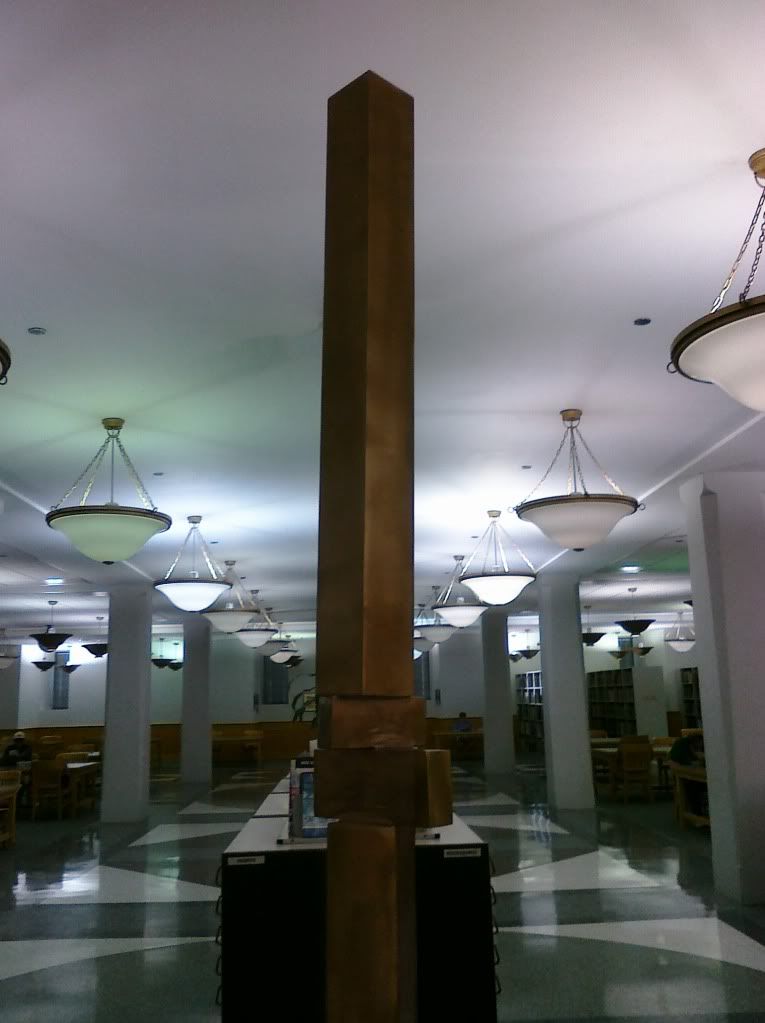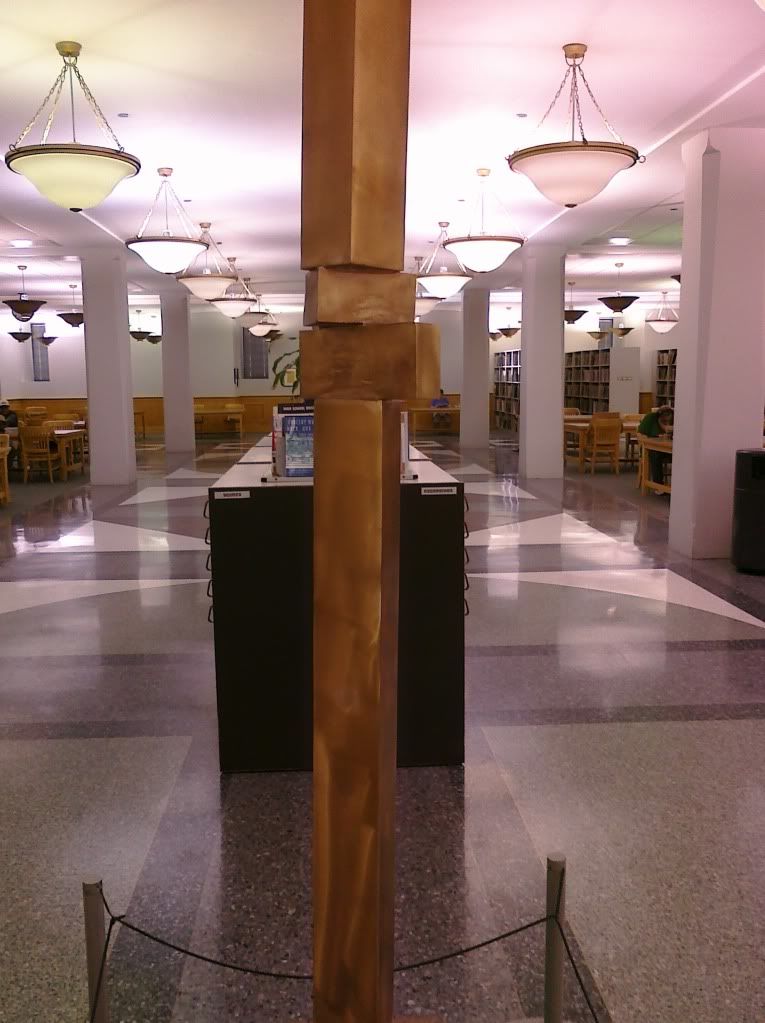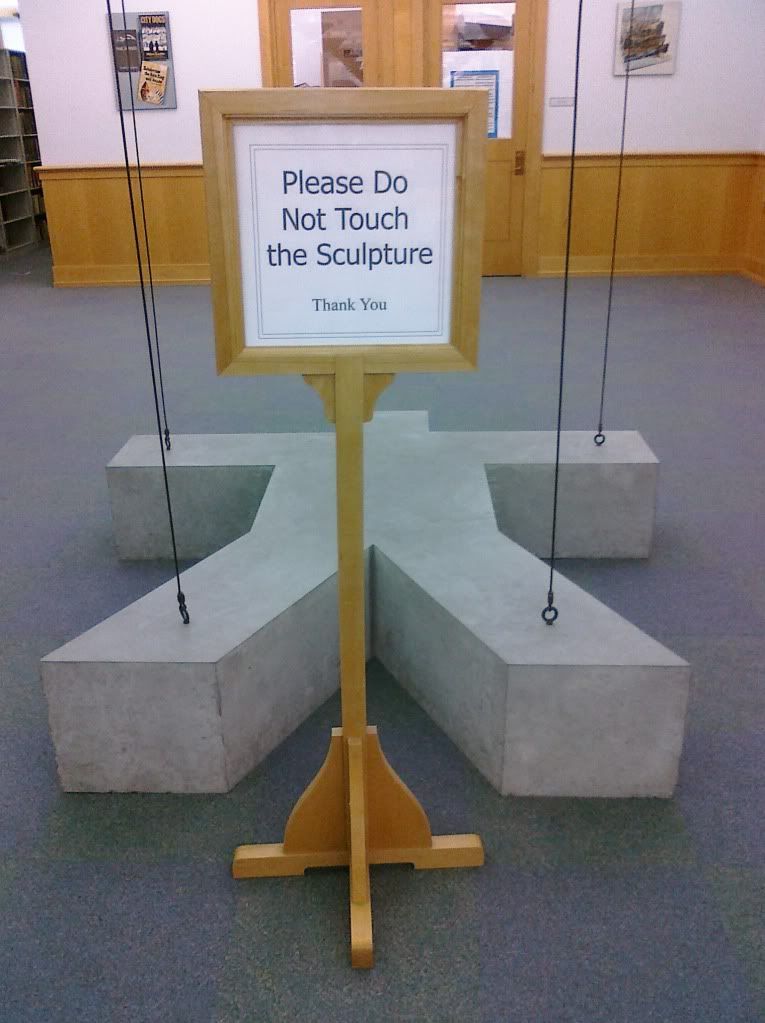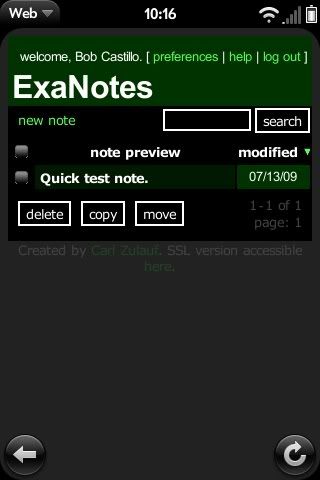
I'm pretty happy with my Palm Pre but one of its shortcomings is in the Memos app. While it's a nice looking app, it is too simple, lacking such old-school PalmOS amenities as Categories or a List View. Worse yet, unlike the Pre's Contacts and Calendar, the Pre's Memos don't sync to anything. They are trapped on the Pre and cannot be edited on a desktop computer.
While I was able to
import all of my old PalmOS memos into the Classic PalmOS emulator, again I have a situation where my memos are trapped because Classic
cannot yet sync to anything. And since Classic cannot exchange cut and paste data with normal webOS apps, my memos are in a sense doubly trapped—on inside Classic semi-isolated from the rest of the Pre's data and unable to sync with the outside world.
Today I stumbled on to an interesting web-app.
Exanotes is a web-based
note-taking service. While it does offer a clean, simple interface what stood out for me is the fact that the service it uses
256-bit AES encryption. Good encryption is one of the things which have been sorely lacking in "Cloud Computing" applications and may help assuage the fears of people who are worried about putting their data into the hands of a third-party website.
The author of the web service has stated that he wants to create webOS app which syncs with the web service in the background. This would eliminate the need for a desktop client as any computer with a browser can be the desktop client for a user of this service and it will still be protected by the user's password (just don't click on the "Remember Me" check box if you are somebody else's computer).
My only real concern regarding Exanotes is its scalability. Will it be able to support thousands or even millions of users trying to sync to it at the same time? Only time will be able to answer that question but for now I'm hopeful. Exanotes looks like what I want to hear when people talk about Cloud Computing and I hope it succeeds.
Exanote might be worth checking out for people thinking of moving from a PDA to a smartphone.
 Life is good for a Palm Pre user who's not afraid to take risks with his phone. Precentral has turned into an unofficial clearinghouse for the hackers who are delving into the innards of the Pre's operating system and building new apps at a time when Palm's App Catalog has been stuck at thirty apps for a month.
Life is good for a Palm Pre user who's not afraid to take risks with his phone. Precentral has turned into an unofficial clearinghouse for the hackers who are delving into the innards of the Pre's operating system and building new apps at a time when Palm's App Catalog has been stuck at thirty apps for a month.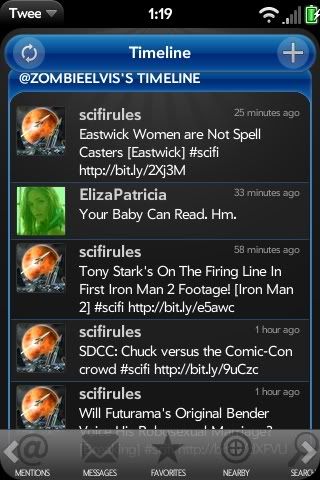














![Reblog this post [with Zemanta]](http://img.zemanta.com/reblog_e.png?x-id=13029aba-b626-4c8b-a250-a66cd7c1e518)


![Reblog this post [with Zemanta]](http://img.zemanta.com/reblog_e.png?x-id=ea7565b1-73df-4918-8517-a7915a69bd85)

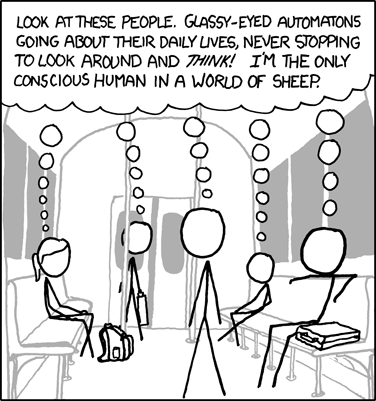
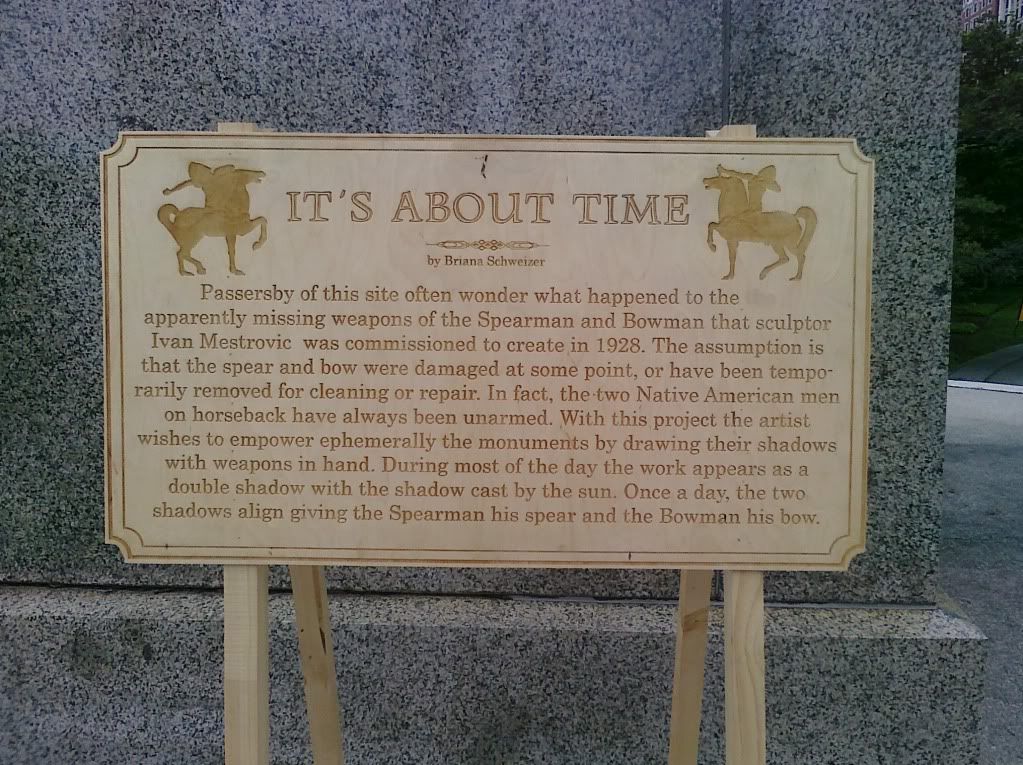
















![Reblog this post [with Zemanta]](http://img.zemanta.com/reblog_e.png?x-id=c3109fa3-fb22-4bb5-92ef-c4d17fb4b613)

![[Pimlical Multiday View]](http://www.pimlicosoftware.com/Pimlical-MultiDayView.gif)
